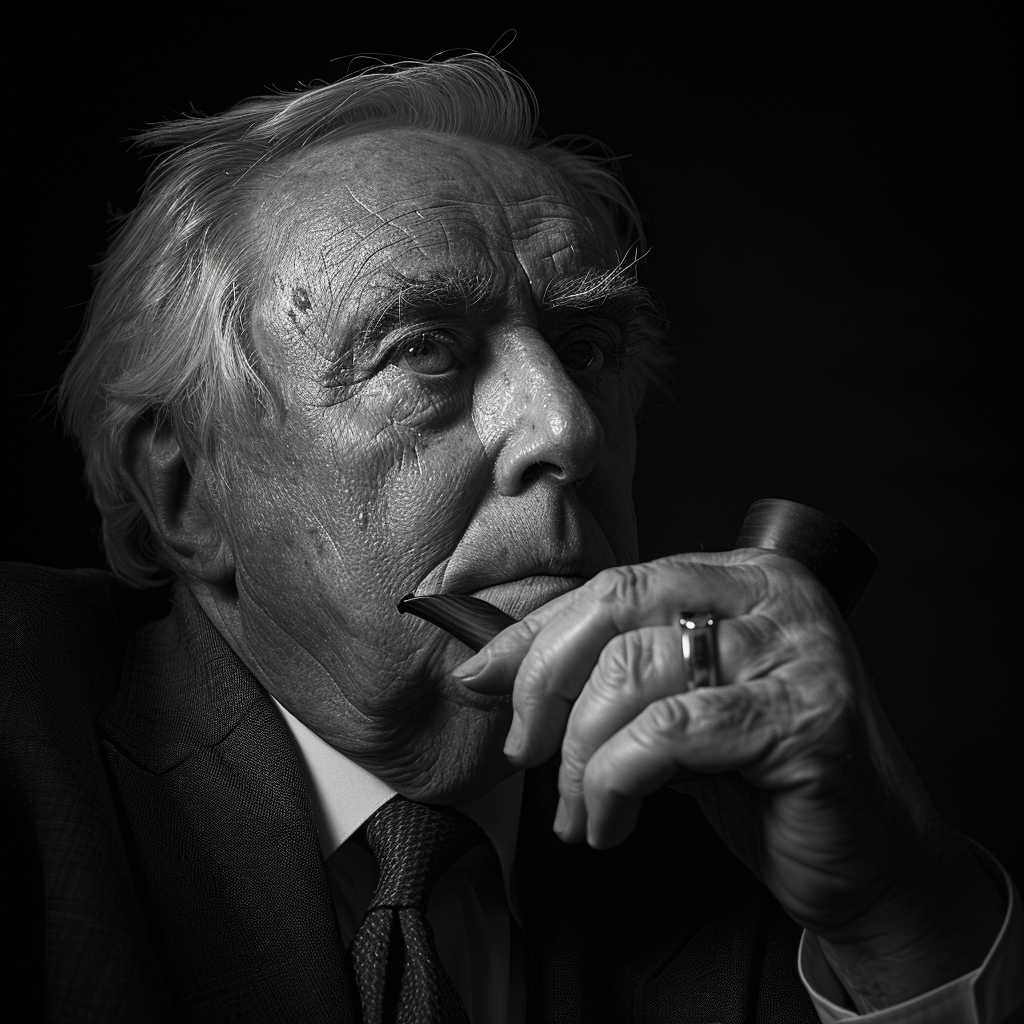The Political Legacy of Harold Wilson: Steering Britain Through a Transformative Era
Harold Wilson served as Prime Minister of the United Kingdom during a period marked by social change and economic challenges. His leadership spanned two non-consecutive terms, first from 1964 to 1970 and then again from 1974 to 1976. His governance saw both substantial domestic reforms and significant shifts in foreign policy.
Early Life and Rise to Political Prominence
Born on March 11, 1916, in Huddersfield, Harold Wilson was the product of a political and academic environment from his early years. He excelled in his studies, earning a scholarship to Oxford University. From academia, he shifted gears towards politics during World War II, initially working as a civil servant before officially entering the political sphere.
Wilson’s sharp intellect and prowess in economic matters soon landed him a seat as the Member of Parliament for Ormskirk in 1945 with the Labour Party. His ascent was swift; by 1963, following the sudden death of Labour leader Hugh Gaitskell, Wilson took over the helm of the party and steered it toward a win in the 1964 general elections.
Prime Ministerial Tenures: Reforms and Challenges
Harold Wilson’s first term as Prime Minister was characterized by ambitious social reforms amidst economic difficulties. He spearheaded efforts to modernize the British economy, promoted higher education, and supported liberal policies such as the decriminalization of homosexuality and abortion under certain conditions.
His government also pursued an independent foreign policy marked by a careful balancing act during the Cold War. However, financial instabilities, including currency devaluation and struggling industries, eroded his support over time.
In 1974, Wilson returned to Downing Street amid an equally challenging backdrop pockmarked by an energy crisis, inflationary pressures, and industrial unrest. At this juncture, Wilson pushed through social reforms and negotiated the parameters for Britain’s continued membership in the European Economic Community (EEC), which is considered a forerunner to the European Union.
Despite successes on several fronts, such as conciliating industrial relations and maintaining national unity during a time of profound divisions, Wilson shocked many when he announced his resignation in 1976, citing personal reasons for his departure from the apex of British politics.
Economic Policies and Industrial Relations
Wilson’s economic legacy is nuanced. He was faced with managing an economy in transition and struggled against structural factors beyond immediate political resolution. Attempted revitalizations of industry met with mitigated success, though his establishment of the Department of Economic Affairs aimed at developing a National Plan is reflective of his proactive approach to Britain’s financial woes.
The Prime Ministership under Wilson also acknowledged the necessity for Britain’s adaptation to global market trends—a reasoning that ran through his handling of industrial affairs, advocating productivity over state interventionism when appropriate.
Assessment of Foreign Policies
Harold Wilson navigated a complex international scene skillfully. Through promoting non-alignment during the Cold War and frequent bilateral connections with both Western and Eastern bloc nations, he reinforced Britain’s independence on the world stage.
A defender of the Commonwealth, Wilson dealt cautiously with Rhodesia’s Unilateral Declaration of Independence, emphasizing that majority rule must precede recognition—a stance geared both toward moral justification and concerns over international alliance dynamics.
Wilson’s hesitancy about American escalation in Vietnam coupled with maintaining a cordial diplomatic balance modeled a leadership embodying careful deliberation—a trait highly regarded in matters of international politics.
Uniting Labour and Internal Party Dynamics
As leader of the Labour Party, Wilson managed differing ideological factions within its ranks—a task requiring discerning negotiation skills and political gravitas. From staunch leftists advocating socialist principles to more moderate members seeking pragmatic courses, unifying these viewpoints under his administration demonstrated political mastery incessantly demanded throughout his dual premierships.
Retrospective Views and Lasting Impact
History’s judgment on Harold Wilson’s impact has evolved over time. Scholars and commentators continue to analyze his substantive legacy that includes social progressivism with marked influences on later Labour governance approaches. He not only guided Britain through transformative years but also envisioned shifts necessary for maintaining its relevance—imbuing significance into domestic policy reflective of broad social ideals despite encumberment by concurrent economic constraints.
Notes
Image Description: A monochrome portrait photograph depicting an ageing Harold Wilson thoughtfully posing with his iconic pipe—one hand resting near his cheek reflecting contemplation—symbolic of his analytical mind and steady command over the intricacies of politics during turbulent times.
